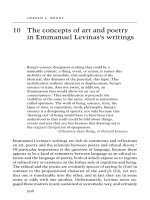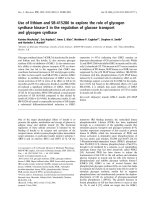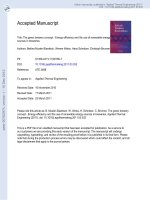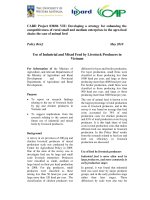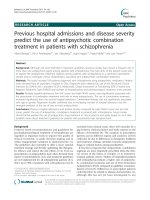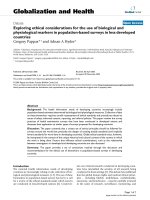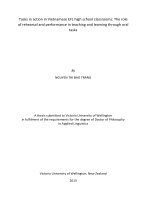The use of was and were in the 2nd conditional
Bạn đang xem bản rút gọn của tài liệu. Xem và tải ngay bản đầy đủ của tài liệu tại đây (12.01 KB, 1 trang )
The use of was and were in the 2nd conditional
We have already learned that the second conditional form is used to talk about unreal or imaginary situations.
Here we use a simple past tense in the if-clause and would + infinitive in the main clause.
I would make a cake if I got time.
She would clean the carpet if you asked her.
I would buy a bungalow if I had money.
In the second conditional, when the verb in the if-clause is a form of be, we use were instead of was. Note that
this use of were is possible and recommended with all subjects. Was is also becoming acceptable, but many
grammarians still insist that you should use were.
If she were my daughter, I wouldn’t let her drop out of school. (NOT If she was my daughter, …)
If I were you, I wouldn’t trust him.
If they were really interested in the offer, they would contact you.
In some cases, however, if I was is also possible. For example, when are talking about real situations that
happened in the past, the use of if I was (or if he /she / it was) is considered more correct.
If I was in a hurry, I usually skipped my breakfast.
If she was angry, she would shut herself up in her room.
Note that in the sentences given above, it is possible to replace the if with when.
When I was in a hurry, I usually skipped my breakfast.
When she was angry, she would shut herself up in her room.
Stay on top of your writing! Download our grammar guide from www.englishgrammar.org to stay up-to-date.
Powered by TCPDF (www.tcpdf.org)
